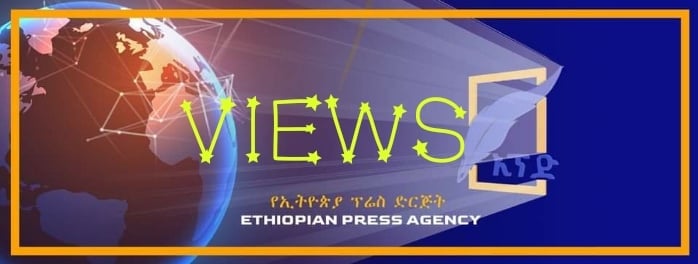
BY KFLEEYESUS ABEBE
In times of prolonged conflicts or war, it might seem right to intervene and stop more bloodshed and humanitarian catastrophe. There were many cases the international community pressured warring parties to come into table and solve their issues. But other times, the world has also witnessed third party intervention including military one in the pretext of halting crisis. These interventions are recently sanctified as humanitarian intervention and happening now and then. Kosovo, Nicaragua, Afghanistan, Iraq and Libya are textbook examples of misguided foreign interventions.
While discussing the legality of humanitarian intervention in her book entitled “Humanitarian Intervention: A legal analysis”, Kirthi Jayakumar points out its contradiction to basic principle of international law. “The principle of respect for the territorial sovereignty of states is well founded as one of the linchpins of the international system, as is the norm prohibiting interference in the internal affairs of other states,” Kirthi wrote. Interventions also override humanitarian principles: humanity, neutrality, impartiality and independence.
In some cases, humanitarian interventions are not only illegal. They are also impractical. In many cases, they have failed and ended further complicating the problem at hand. A study ‘state failure in the modern world’ by Stanford University blames Western states for state failures reoccurring in many nations across the world.
The crisis in Libya is a very good example in this regard. United States’ intervention in Libya at the time was hoped to end humanitarian catastrophe and support peace and democracy in the country. But after ten years, Libya is war torn country with much exacerbated humanitarian conditions. In November 2018, CNN broadcasted shocking footage of dozens of migrants being sold in slave auctions in Libya.
A senior fellow at Carnegie endowment for international peace Steven Feldstein described slave auctions “a dreadful new low for a situation that long ago ceased to shock.” Reports of Amnesty International and other humanitarian groups showed migration of large number of people, sexual violence, abuse and exploitation have become rampant in the country after the failed intervention. In many interviews he gave, former President Barack Obama admitted that the interventions especially the one in Libya were a failure and his ‘worst mistake’. He said the US failed because it did not have enough understanding of the situation on the ground. Whereas, THE CONVERSATION argues the US did intervene “only out of self-interest. This means policies concerned with regional stability and not democracy.”
Hence bad consequences of ‘humanitarian interventions’ in Libya and others other countries are evident that interventions are impractical and ineffective. Unfortunately, Western states don’t seem to learn from these failures and regret by the suffering of people in the regions they intervened. They rather seem to have chosen another country for intervention and continue further complicating instability and security of the world.
The target for now seems to be Ethiopia. Once again humanitarianism is being exploited as a pretext to dictate, pressure or intervene in the affairs of some other country. Since last November, Western states have shown intention of intervening in Ethiopia’s Tigray region conflict in many ways. Impartiality of their comments, alleging of government for humanitarian violation and sanctions are among the steps they have already been taken.
Despite Ethiopian government was providing largest humanitarian assistance for people caught between the conflict, Western states particularly the United States has been criticizing Ethiopia for blocking aid and accused government as using “hunger as weapon of war.” The Ethiopian government has responded as the claims are unfounded and it has been working to provide food for those who need it. It also declared a unilateral ceasefire in an effort of supporting people in the region to grow their food or get humanitarian assistance of the international community.
But Western states especially the United States of America is still calling for unhindered access to humanitarian assistance. Days before her visit to Sudan and Ethiopia, United States Agency for International Development (USAID) administrator Samantha Power said “there were will be punitive measures as long as we are unable to access those populations.” After Samantha’s visit, Aljazeera wrote that the Biden administration hopes to secure “unhindered humanitarian access to Tigray.”
The statement in itself carries a tone that the US has the intention of intervening in the crisis though Ethiopian government is doing everything it can for aid to reach Tigray. Samantha’s latest remarks further prove the Western will of intervention. As she speaks with Mandela fellowship summit, she alleges government for all crisis happening in Tigray. “The government brutal campaign against the people of Tigray has put the country at risk of imminent and prolong civil war,” she said.
The call of unhindered access however demands humanitarian corridors to be opened in Ethio-Sudan border and aid to pass without monitoring or checking by Ethiopian authorities. The Ethiopian government has said humanitarian corridors would be checked as they could be manipulated by TPLF terrorist group groups. In a response to Samantha Power’s call to open Ethiopian Sudan border for humanitarian corridor, Minister of Labor and Social Affairs said on tweet: “Access to Tigray region is allowed through Amhara and Afar regions.
Opening a corridor through Sudan border will subvert the sovereignty of Ethiopia.” There were also times that loose humanitarian corridors being abused by armed groups. Sophia Hoffmann in her book Humanitarianism: Keywords puts the loophole of humanitarian corridor as follows: “Humanitarian corridors may fail to achieve their goal and have occasionally been abused by armed actors as smuggling routes for weapons or other resources. In every case, humanitarian corridors are not neutral or impact free activities; their existence changes the make-up of the local war economy,” Hence Ethiopia determined to protect humanitarian corridors by checking items passing along the route as it is imperative for the safety and existence of Ethiopia and Ethiopians.
Regardless of the fact, the pressure and intention of intervention is becoming apparent. But if it is all about humanity and there is a will to learn from mistake, it is essential for Western states to do two important things that are never done in Libya or elsewhere: one is to have good understanding of the situation on the ground and the other is to be impartial.
Editor’s Note: The views entertained in this article do not necessarily reflect the stance of The Ethiopian Herald
The Ethiopian Herald August 10/2021





